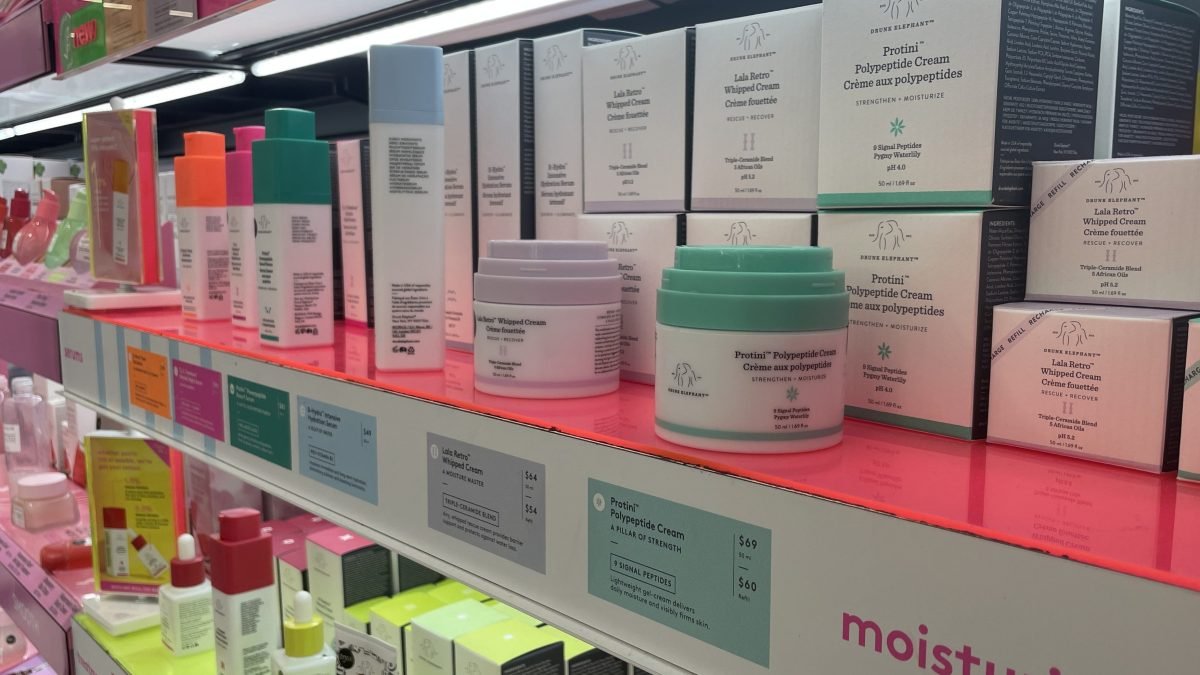On a Saturday afternoon, Tallulah and Mitchen zigzag through the aisles of Sephora at Century City Mall in Los Angeles. The store is crowded, but the pair easily find the products they spotted on TikTok’s “For You” page, with their mothers dutifully trailing behind them.
Because Tallulah and Mitchen are 10 years old.
Michen bought some lip balm today, but she also bought an eye mask and a scrub, which are part of her long pre-bedtime routine.
“They see everything on TikTok, and then they come here and want to buy everything they see,” her mother, Dana Michels, said.
On TikTok, countless influencers are endorsing these products, including anti-wrinkle creams. These anti-aging products come in fluorescent bottles and tubes with a lid that you press to dispense just the right amount. They look like toys. And they cost up to $70 each.
And elementary school kids like Tallulah and Mitchen never get bored.
“That’s bananas,” Michels says, playfully covering her daughter’s ears. “I feel like I’m fighting a losing battle. I don’t know if it’s a battle, it’s just reality.”

The reality is that it’s not just a result of social media, but good old-fashioned societal pressures as well.
“Everyone at school is wearing them,” Tallulah says. “It makes me feel more grown up.”
Neither explanation comes as a surprise to Karen North, a psychologist and professor of digital and social media at the University of Southern California.
“For a long time we’ve seen kids trying to act a little bit more grown-up, dressing up in fashionable clothes, wearing their mom’s shoes, putting on makeup,” she says, “and now they have TikTok as their big brother to emulate.”
North says these products have become collectible status symbols, similar to how kids used to collect baseball cards, but they now come with a bigger risk than bragging rights: For some kids, they’re actually damaging their skin.
“You may experience inflammation, redness, burning sensation and even photosensitivity and sensitivity to the sun, which can lead to sunburn,” says dermatologist Evette Ramsay.
These are side effects of anti-aging products, which are designed to increase cell turnover rates and help prevent acne and wrinkles, but can be bad for the sensitive skin of young children.
“It’s often used by the wrong age group, and people also use too many combinations of products that can be irritating,” she says.
These combinations are also called “skin care smoothies.”
California lawmakers are committed to protecting children. Bay Area state Assemblyman Alex Lee drafted a bill this year that would have banned the sale of anti-aging products to children under 13. The Personal Care Products Council, a cosmetics trade group, opposed the measure, and it died.
“We share Rep. Lee’s concerns about the prevalence of preteens and teens using anti-aging products on social media, but, however well-intentioned, California’s bill, AB 2491, raises significant compliance issues,” the group said in a statement.
Lee said he might reintroduce the bill next year with some changes to the language. He’s not convinced the opposition is fair.
“A 12-year-old can’t buy an M-rated game on his own, and he can’t buy a ticket to an R-rated movie on his own,” he says. “So when the industry acts as if it can’t self-regulate, I say that’s nonsense.”
There’s a lot going on in the world, and Marketplace is here for you.
Marketplace helps you analyze world events and bring you fact-based, easy-to-understand information about how they affect you. We rely on your financial support to keep doing this.
Your donation today will power the independent journalism you trust. Help sustain Marketplace for just $5 a month so we can continue reporting on the things that matter to you.

